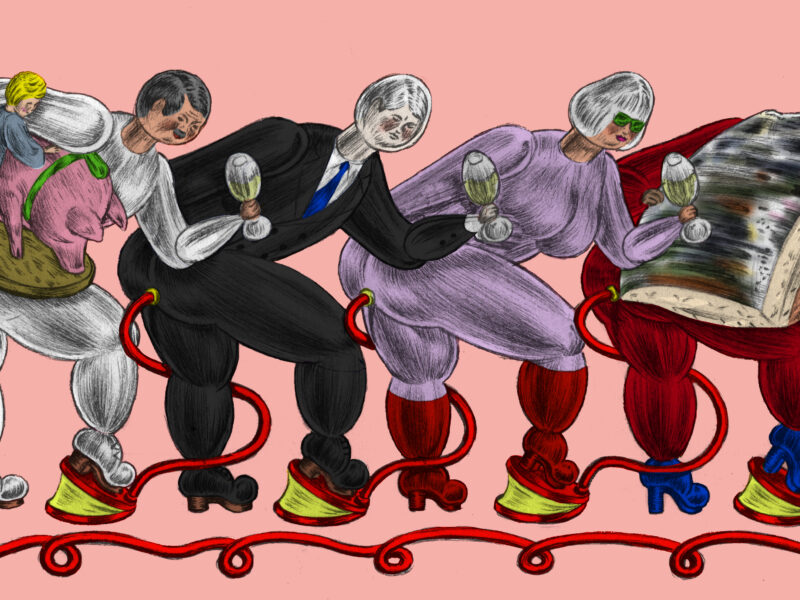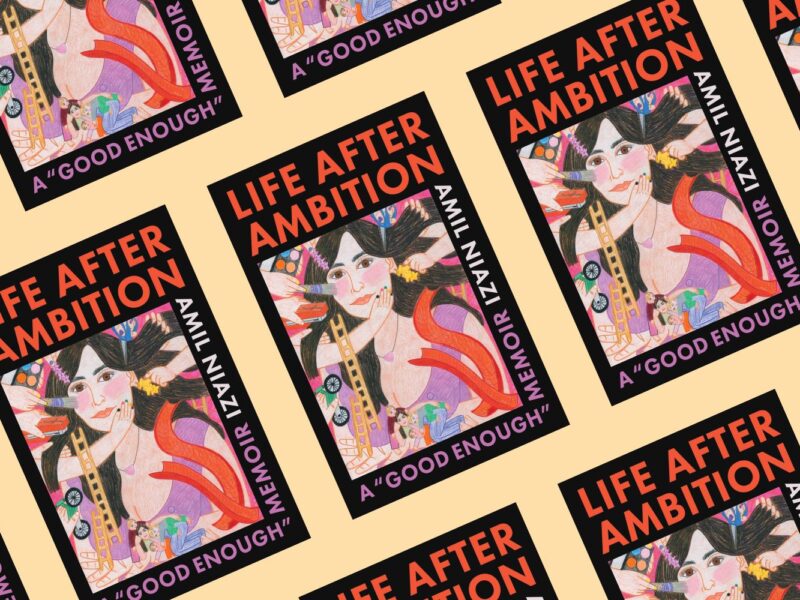A few unconventional beach reads from the Conversationalist team.
Trauma Plot: A Life by Jamie Hood
Part memoir, part literary criticism, part autofiction, part therapy diary, and totally all-consuming, Jamie Hood’s Trauma Plot considers how rape upends subjectivity, narrative, and identity — and, in more personal terms, what it means to build a life that acknowledges the reality of sexual violence while refusing to be defined by it. Structurally, it’s one of the most interesting books I’ve read in years; emotionally, it’s one of the most gripping. It’s searing and surprisingly funny, both brilliant and deeply intimate. And though its subject matter is dark, Hood’s a gifted stylist who writes with a powerful spirit of hopefulness and solidarity. I found Trauma Plot utterly unforgettable.
—Marissa Lorusso
Skin and Bones by Renée Watson
I started reading Skin and Bones by Renée Watson at the top of the year, a Christmas gift from a friend. The premise follows a woman, Lena, who is set to get married when her fiancé divulges a secret the day of their wedding. The book is about heartbreak and forgiveness and how relationships evolve. It’s about friendships, motherhood, and multigenerational hurts, lessons, and loves. But even more, it’s about the dynamics, social and political, of being a fat, black woman in the U.S.; specifically within historical and present black Portland.
I didn’t know what to expect from Skin and Bones, though I’d been a bit familiar with Watson’s poetry. Like her poetry, her pose is soulful, and the story keeps you wanting to know more and more and more, so much so that by the end, I still wanted to know more about the main character Lena and the world she existed in. However conscientious I may consider myself now about the politics of fatness, there’s so much nuance in the book Watson offers through Lena’s story, and I’m appreciative of the insight given that I didn’t know; that perhaps I could not have easily known.
All in all, the book is both informative and heartfelt, and whatever time of year you read it in, it’s sure to deliver warmth to your skin—and bones.
—Kovie Biakolo
Alligator Tears: A Memoir in Essays by Edgar Gomez
From working at a bougie flip-flop store to Latin dance nights at Pulse nightclub, Edgar Gomez’s Alligator Tears is an ode to Florida and queerness. As someone who also grew up in Florida, I saw so much of myself in Gomez’s story. His book made me laugh, cry, and feel less alone. The writing is so raw; it’s a refreshing dive into the deep end of some topics that are rarely discussed with such honesty. (Just be warned that in the deep end, you may find some alligators lurking.)
—Kiera Wright-Ruiz
The Adventures of Amina al-Sirafi by Shannon Chakraborty
I’ve been reading a lot of escapist fantasy to cope with current events, and this novel about Amina al-Sirafi, a retired pirate who gets sucked back into sailing the medieval Indian Ocean in search of a kidnapped kid and ancient, magical treasures, was the most fun I’ve had with a book of late. It’s also especially unusual to find middle-aged mothers as fantasy protagonists, and it reminded me of another favorite, N.K. Jemisin’s Broken Earth trilogy. Even better, the book is set up to become a series, which means more adventures to come.
—Anna Lind-Guzik
Things in Nature Merely Grow by Yiyun Li
Early in her memoir Things in Nature Merely Grow, Yiyun Li writes, “Facts are the harshest and the hardest part of life.” Yet it is the sturdiness of facts, “unalterable,” that the writer finds herself returning to in the aftermath of immeasurable loss: the deaths of both her children by suicide, six years apart.
Li writes about the abyss of grief, aware that she is still in it, and perhaps always will be. Things in Nature Merely Grow is Li’s book for her younger son James, a boy who lived life through his thoughts, and it is therefore led by logic; exploring how we think about, talk about, and rationalize death, suicide, and grief. This isn’t to say the book abandons feeling—far from it—but rather that Li’s feelings are almost always tethered to facts: Each moment she catches herself on the cliff’s edge of a hypothetical, she steps away, knowing no answer will change her reality.
A deeply generous book, this memoir flowed through me. It’s staggering to read something that so deftly addresses how impossible it is to put grief into words while doing it so masterfully. Yet here, Li’s writing is precise, capturing grief’s abyss with unwavering clarity.
—Gina Mei
Not Your Rescue Project: Migrant Sex Workers Fighting for Justice by Chanelle Gallant and Elene Lam
As a sex worker and a writer, I’m constantly on the lookout for that rare text that covers adult industry workers with nuance, accuracy, and cultural competence. Not Your Rescue Project: Migrant Sex Workers Fighting for Justice, written by sex worker advocates Chanelle Gallant and Elene Lam, is one such uncommon text. Published last year, this timely book balances workers’ personal narratives with a play-by-play breakdown of the historical and contemporary jigsaw puzzle of racist and sexist policy, stigma, and violence that plagues migrant sex workers in North America. Many people outside the sex industry don’t understand how anti-sex worker stigma affects them personally, and I’m always excited when I find a piece of media that connects the dots in a way that’s easy to understand. Not Your Rescue Project accurately situates migrant sex work as a global justice issue about gender and labor, and every page is a well-researched argument for why anyone who wants to end patriarchy would benefit from joining the fight for migrant sex workers’ rights.
—Delilah Saul
Catalina by Karla Cornejo Villavicencio
The novel is written with simple language, but I read each page slowly, because every sentence contains meaning and emotion. This is the story of Catalina and her grandparents, an undocumented Ecuadorian family living in Queens, New York. From a young age, Catalina feels the fear and pressure of living in the States without a visa. When she graduates from high school, she begins studying at Harvard—her family’s great dream for her. But as the story unfolds, it becomes clear that attending such an institution won’t necessarily fulfill the promise of solidifying her immigration status, nor give her family the upward mobility they’d long hoped for.
Faced with the impossibility of telling her own story, Catalina finds a way to claim space by deciding to become art—because then, she would be seen, and admired, and perhaps even able to legalize her immigration status. After all, a recognized work of art can freely come and go, without needing visas.
Unlike other common portrayals of immigrants in pop culture, Cornejo Villavicencio’s novel does not portray immigrants as victims. Rather, it asserts a claim: Immigrants want to be seen, and have the right to joy.
—Ana María Betancourt Ovalle
Coach Prime: Deion Sanders and the Making of Men by Jean-Jacques Taylor
This book spoke to me on so many levels. Coach Prime is more than a story about football—it’s a deep, intimate look into what it means to lead with integrity, faith, and fearlessness in a world that often misunderstands or underestimates you. Deion Sanders, known for his illustrious NFL career, emerges here not just as a coach, but as a transformational leader, mentor, and father figure who guides young men through life’s toughest moments with purpose and poise.
In an era where diversity, equity, and inclusion (DEI) efforts are often under attack or dismissed, Sanders’ approach also offers a compelling and deeply needed counter-narrative: He doesn’t just preach inclusion—he lives it, modeling how authenticity and high standards can coexist. Rather than lower the bar to accommodate struggle, he lifts people up so they can reach it.
Personally, this book has challenged me to lead with greater intentionality, to show up more consistently in my purpose, and to be a source of confidence and clarity for others. I’ve taken away this truth: Real leadership isn’t about being loud—it’s about being rooted. Others can learn from this book that greatness isn’t found in performance alone—it’s in how you treat people, how you guide them, and how you hold space for others to grow. That’s how we build lasting impact—not just on the field, but in every part of our lives.
—Loleta Ross
The Book of Alchemy: A Creative Practice for an Inspired Life by Suleika Jaouad
As a lifelong journaler, I’ve been relishing each page of The Book of Alchemy by Suleika Jaouad. Even if you don’t journal (or aspire to but haven’t made it a ritual—yet!), it’s a beautiful collection of 100 essays from deep thinkers and wisdom gatherers that you can flip through and digest at your own speed. I love that each essay is short, only a few pages; which means I can manage to finish one at bedtime before falling asleep. Each essay ends with a prompt for journaling, a friendly hand reaching out to you to help make the habit a little more inviting and doable. It continues to surprise me how a journal (or just any ole notebook, really) can instantly become a safe space and listening ear for what’s swimming inside of you and wants to be released. A free form of therapy that’s available whenever you need it. Thank you Suleika for unlocking the magical world of journaling that’s awaiting all of us!
—Erin Zimmer Strenio












